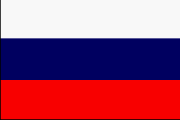




AO "Aviastar" Ulyanovsk Aviation Production Complex Ulyanovskiy aviatsionnyy promyshlennyy kompleks imeni D. F. Ustinova Prospekt Sozidateley, 9; Prospekt Antonova, 1 432062 Ulyanovsk, Russia Tel: (8422) 20-72-26 Fax: (8422) 20-95-61
Designed from scratch in the early 1970s to produce a new generation of strategic bombers [though it is not clear just which one], the Ulyanovsk Aviation Production Complex (renamed Aviastar in November 1991 when it became a joint stock enterprise run by its workforce) is said to be the largest aviation production facility in the world and is the newest one in Russia.
Aviastar was originally intended to have airframe, avionics, and engine manufacturing facilities all in one complex, but the avionics and engine facilities have not been completed. Construction of the facility began in 1974, and the first aircraft was rolled out in the mid 1980s. Aviastar has built a small city containing housing for 85% of its workers and operates a training center including an institute for aviation engineers, a technical high school for aviation line workers, and a cooperative farm. The plant owns 40,000 acres of arable land on which it produces agricultural goods for its workers and for sale. It also has a 5 kilometer, 150 meter wide runway originally built as a reserve landing strip for the Buran space shuttle program.
The town of Simbirsk was established in 1648 by voevode (commander of an army, governor of a province in ancient Russia) D.V.Kihtrovo as a fortress to protect the Southern borders of the Moscow State. . In 1870 V.I.Ulyanov (Lenin) was born in Ulyanovsk and in 1924 Simbirsk was renamed to Ulyanovsk in his honor. The town of Ulyanovsk is situated at the eastern part of the Russkaja plane in the middle Volga region. It is bordered by Mordovia, Chuvashia, and Tatarstan. Ulyanovsk is 893 km southeast of Moscow Area.
Aviastar a member of the ANTK Tupolev production group, is a big, new and well equipped aircraft assembler. Aircraft of the TU-series are produced at Aviastar, KiGAZ, Aviacor, KAPO Gorbunova, Takom-Avia and Arnaks aircraft factories. It produces the An-124 long-range heavy transport aircraft (comparable with the U.S. C-5) and the 200-seat Tu-204 medium-range airliner (comparable with the Boeing 757). The company is committed to supply 30 Tu-204 airliners with Rolls-Royce engines to Egyptian Sirocco Aerospace and 20 Tu-204 with Perm PS-90A engines to Vnukovo Airlines. Other products include consumer products including mini-yachts, kitchen and other furniture, washing machines, and linoleum material, foodstuffs for food processing and foxes for the international fur trade. Since the Russian military halted all procurement of the Antonov-124 cargo planes, Aviastar ended up at the edge of bankruptcy. The company also failed to boost production and sales of its new Tupolev-204 medium-haul aircraft. Between 1996 and 1998 Aviastar sold only 4 such aircraft -- 3 of these planes were bought by the Egytian Kato Aromatic company. Most of Russian airlines can not afford buying aircraft at present. In August 1999 Aviastar signed a deal with Egyptian leasing company Sirocco to supply 15 Tu-204-120s which would be produced over a few years. The deal is part of a 1994 agreement under which Sirocco planned to buy 200 of the aircraft for leasing to airlines. As of late 1999, Aviastar had 15 Tu-204s in a high degree of completion, needing a relatively moderate investment to buy engines, avionics and other components from subcontractors. Total employment was 36,000 as of 1992. The plant's workforce decreased from nearly 40,000 in 1994 to 17,000 in 1998, with two thirds of the workers being on leave without pay. People started to split the enterprise into dozens of small joint stock companies. As a result, each joint stock company had to pay the value-added tax, and the final product's cost rose dramatically.The company has founded its own maintenance and repair center, which is authorized to carry out all types of checks on Tupolev-204 and Antonov-124-100 aircraft. If the Government fails to establish procedures for leasing of Russian- made aircraft, Aviastar can become a repair and maintenance station.
Aviastar is developing a lighter-than-air craft incorporating dirigible and aircraft features known as a thermoplane which could be adapted to a wide range of uses including search and rescue, fire-fighting, remote heavy-lift transport, and passenger transportation. It is also exploring ways to convert its An-124 aircraft into super-jumbo aircraft capable of transporting 600-800 passengers. Helicopter production is also under consideration. Aviastar is also considering utilizing its agricultural resources for developing a food processing industry. Aviastar uses modern techniques for materials processing (such as aluminum lithium milling) and manufacturing (moving heat treatment furnaces and aluminum heat treating lines). Aviastar appointed Price Waterhouse to help it develop a long-term business strategy and sell up to 50 percent of the firm's shares to Western partners or investors. Aviastar, with the Tupolev design bureau and the British merchant bank Robert Fleming and Co., has formed the British Russian Aviation Corporation (Bravia) to market the Tu-204 airliner equipped with Rolls-Royce engines. It has also formed the Volga-Dnieper airline in a joint venture with Heavylift Airlines, a UK firm, to operate An-124 aircraft on international cargo charters. Under an agreement with Airbus, Aviastar also plans to start flying large aircraft subassemblies between the Airbus plants in Manchester, Bremen, and Toulouse in 1993. Other projects under consideration include production of a Tu-204 variant with Pratt & Whitney engines and joint ventures with a German automobile manufacturer and an Italian consumer-durables firm.
